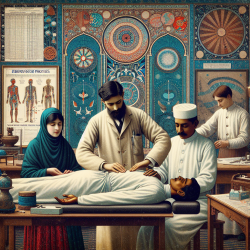Introduction
Otitis media (OM), a prevalent childhood disease, poses significant challenges due to its potential to cause chronic and recurrent middle ear infections. The recent study titled The transcriptome of a complete episode of acute otitis media provides invaluable insights into the genetic underpinnings of OM, offering pathways for improved therapeutic interventions and outcomes.
Understanding the Study
The study conducted by Hernandez et al. (2015) utilized a comprehensive transcriptomic approach to analyze gene expression during an episode of acute otitis media (AOM) in mice. By inoculating the middle ears of mice with non-typeable Haemophilus influenzae (NTHi), researchers could observe the entire progression of the disease from infection initiation to resolution. The study's findings highlight the dynamic gene expression changes that occur, emphasizing the role of innate immune responses and inflammation regulation.
Key Findings and Implications
Approximately 8% of the sampled transcripts were identified as defining the signature of acute NTHi-induced otitis media. The study revealed several temporal gene clusters, with network and pathway enrichment analyses identifying genes involved in:
- Activation of the innate immune response
- Negative regulation of immune response
- Changes in epithelial and stromal cell markers
- Recruitment and function of neutrophils and macrophages
Importantly, the study identified key transcriptional regulators that likely determine the expression of these gene clusters. This information is crucial for practitioners aiming to enhance their understanding of OM pathogenesis and develop targeted interventions.
Practical Applications for Practitioners
For speech-language pathologists and other practitioners working with children, these findings underscore the importance of early detection and intervention in cases of OM. Understanding the genetic basis of OM can lead to more personalized treatment plans, potentially reducing the risk of chronicity and associated speech and language delays.
Practitioners are encouraged to integrate these insights into their practice by:
- Advocating for genetic screenings in recurrent OM cases
- Collaborating with medical professionals to develop comprehensive care plans
- Staying informed about emerging research and therapeutic strategies
Encouraging Further Research
While the study provides a robust foundation, further research is necessary to translate these findings into clinical practice fully. Practitioners are encouraged to engage in or support research initiatives that explore the genetic and molecular mechanisms of OM, aiming to develop innovative treatment approaches.
To read the original research paper, please follow this link: The transcriptome of a complete episode of acute otitis media.










